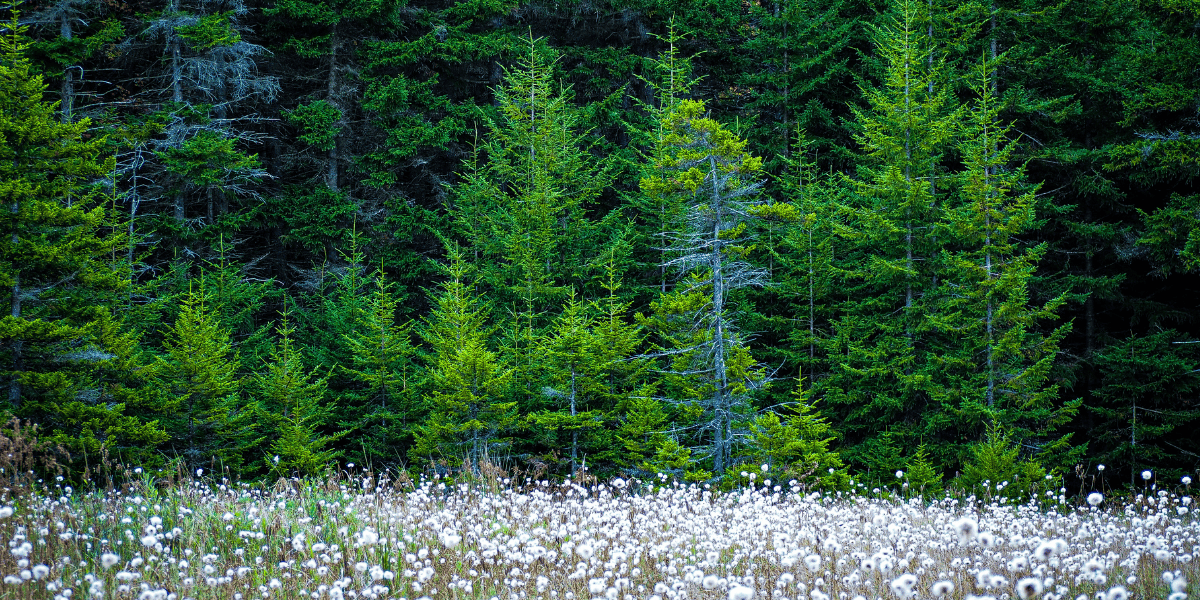By Olivia Miller, West Virginia Highlands Conservancy
The Monongahela National Forest is among West Virginia’s most cherished places—a realm of misty spruce groves, deep hollows, and pristine mountain streams that sustain local communities. Its headwaters supply clean drinking water and support aquatic life, including native brook trout and the endangered candy darter, a dazzling fish found only in a handful of Appalachian waterways. Generations of visitors have come here to fish, hike, and camp. It deserves our best stewardship.
Right now, the Monongahela is threatened by the activities of South Fork Coal Company, which is illegally transporting more than 100,000 tons of coal annually through the forest along “Haulroad #2.” The law prohibits surface coal mining in national forests unless a mining company had “valid existing rights” before the Surface Mining Control and Reclamation Act of 1977. South Fork Coal never proved such rights. Instead, it claimed its operation wouldn’t affect federal land, yet the company now runs a private, industrial-scale road across the Monongahela to transport coal from the 1,100-acre Rocky Run Surface Mine on what is supposed to be a public Forest Service road.
Numerous West Virginia environmental organizations, including the West Virginia Highlands Conservancy, along with national partners, have challenged these operations in the courts and through regulatory agencies for years. We filed an enforcement action against South Fork Coal for repeated water quality violations at mines near the Forest. We also sued the Forest Service for allowing South Fork to use these roads without properly assessing the environmental impacts, including harm to the endangered candy darter, as required by the Endangered Species Act and the National Environmental Policy Act. Although court cases and permit reviews take a frustratingly long time, we cannot let clear violations continue—especially on federally owned lands in the east, where surface coal mining is largely prohibited.
What’s needed now is decisive action by the federal Office of Surface Mining Reclamation and Enforcement (OSMRE). Sharon Buccino, OSMRE’s Principal Deputy Director, has the authority to order an immediate stop to this illegal coal hauling. If she acts before leaving office on Jan. 17, Haulroad #2 could be shut down until (and only if) South Fork Coal proves it has the legal right to haul coal through public lands and until the Forest Service’s unlawful commercial road permit, issued without the required environmental review, is resolved. This is what justice demands.
Like any large-scale project, coal mining affects more than the companies that profit. It shapes our communities, waterways, and local outdoor economies, which depend on clean streams and intact forests. Nearby areas such as the Cranberry Wilderness and the Falls of Hills Creek Scenic Area draw tourists and recreation enthusiasts who support local businesses, build ties with our towns, and return home with stories of West Virginia’s natural splendor.
When sediment and pollutants from South Fork Coal’s massive Rocky Run Surface Mine—and its illegal haul road—enter the Cherry River, these opportunities slip away. The endangered candy darter cannot withstand ongoing contamination in the streams it needs to survive. Neither can the native brook trout, beloved by anglers and central to local economies. Further habitat loss would weaken Appalachia’s unique biodiversity and undercut the hard work of those striving for a sustainable local economy that benefits everyone, not just a single coal company’s shareholders.
We’ve long fought to hold agencies accountable for enforcing community and environmental safeguards, but laws mean little without officials willing to uphold them. Buccino can reinforce that principle by ordering the immediate closure of Haulroad #2. This would be consistent with her record as a public lands advocate and with the federal mining law’s core purpose of protecting communities and the environment from reckless mining practices.
Over the years, West Virginia has grappled with difficult conversations about coal’s role in our economy. Supporting an industry and its workers does not mean disregarding our laws, waterways, and public lands. We must not sacrifice the Monongahela and downstream communities for the short-term gain of one coal operation. Our region’s long-term prosperity depends on preserving and promoting our public lands, which attract families, visitors, and businesses seeking a place that values its natural legacy and future-oriented development.
Deputy Director Buccino should seize this chance to shut down Haulroad #2 and protect our national forest, its wildlife, and the communities that depend on it. Standing firm now will help safeguard the Monongahela National Forest for the benefit and enjoyment of all Americans—today and for generations to come.
Olivia Miller is a native of Hendricks, West Virginia, and now resides in Morgantown. She is the program director of the West Virginia Highlands Conservancy.

